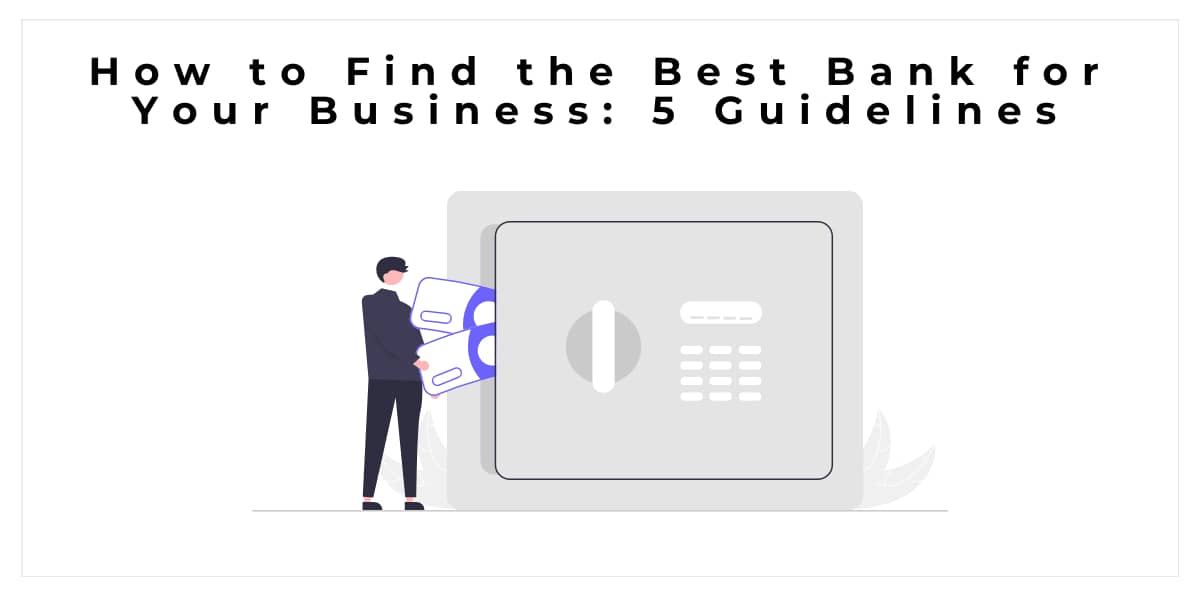Finding the right bank for your company's requirements might seem even more daunting than looking for a personal bank, but this site can help simplify the process. How do you begin to choose?
Small businesses have several banking alternatives. Loan terms, interest rates, and other benefits may vary substantially.
1. It is important to consider the size.
In the financial industry, bigger is better. But it doesn't imply larger is better in every case. The business bank account opening procedure is possible both in a large national bank and in a community local bank. Large financial institutions have several locations, a wide variety of services, and extensive resources. They have access to several credit providers and may be able to provide special incentives for creating new accounts or extending credit.
Smaller, local banks may be more familiar with local market conditions and more willing to deal with you based on your character and profile rather than your credit score. Smaller banks may offer lower rates or fees to get your business.
To judge a local bank's real community reach, look at its official assessment-area maps rather than relying only on branch count. Many banks and regulators publish geocoding resources; for a clear example, see the institution's ffiec geocode which outlines designated CRA assessment areas and the census tracts covered. That visual context can reveal whether a bank actively serves the neighborhoods where your customers and employees live. Combining those maps with conversations about lending focus gives a more complete picture when choosing a banking partner.
Keep in mind that you will need a personal connection with your banker regardless of whether you need the resources and diversity of a big bank or the local knowledge of a small bank. You'll be dealing closely with this individual, and a positive rapport will be invaluable if ever you have difficulties like late payments or overdue fines. So, visit bankers from both major and small institutions. By the way, if you need help opening a bank account or want to know about the lowest dividend tax in Europe, then contact Fintech Harbor Consulting.
2. Verify your credit report.
Larger banks may choose their partners carefully. Thus, a famous bank may deny a startup or low-credit business an account. Local entrepreneurs may be more welcome in community banks.
Research the banks' credit criteria to ensure your business accounts match your demands.
3. Proceed with prudence while using online banking.
Using an online bank requires caution and research, but they're getting increasingly popular. Offline bank relationships and credit lines may be simpler for your company. Bank representatives must sometimes meet in person. Online banks cannot provide personalized help.
Online banks may provide startup checking accounts. Consider the hassle of switching to a conventional bank if your online bank doesn't provide what you require.
4. Location matters
When do you open the bank? Think about how close the bank is to your regular hangouts. Do you anticipate needing to make deposits more often than once per week? How frequently do you visit an ATM while running a business? Do certify bank checks ever come in handy? Do you require access to surcharge-free ATMs when traveling for work?
Consider how often you'll visit the bank based on your business. Consider how frequently you'll visit the bank. If you often traverse state boundaries, you need a reliable bank nationwide.
5. Your digital requirements
How often do you use banking technology? Do you use online accounting automation? Want to use your mobile phone to make deposits? If you travel a lot or work in IT, it's natural to want to bank online.
If this is important, check whether financial institutions use cutting-edge technology and which platforms can meet your needs.
Sum Up
A bank is an important resource for every company owner. Evaluate your needs and the services offered by each bank thoroughly. Keep in mind that you may switch banks if you're not satisfied or if you outgrow the one you began with. Never underestimate the value of a solid working relationship with your bank when it comes to the smooth operation of your company.








